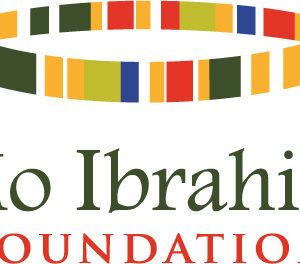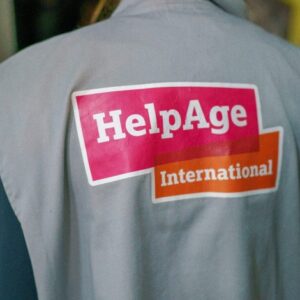
Introduction:
Imagine a young Nigerian engineer, Yusuf, who after years of struggling with unstable wages in Lagos, receives an offer to work on a mega-infrastructure project in Dubai. His life changes overnight: a tax-free salary, international exposure, and career progression he could only dream of in Nigeria. But Yusuf’s journey wasn’t straightforward—he had to adapt to Islamic work ethics, avoid recruitment scams, and prove his technical competence in a highly competitive labor market.
Yusuf’s story mirrors that of thousands of skilled Nigerians seeking opportunities in the Gulf States. Job mobility between these two regions has become a defining feature of global labor migration, fueled by Nigeria’s surplus workforce and the Gulf’s hunger for skilled professionals. Yet, behind the glossy skyscrapers and career opportunities, lies a system shaped by Islamic principles, sponsorship laws, and cultural expectations.
This post explores how Nigerians can successfully navigate these dynamics—highlighting opportunities, pitfalls, and strategies for thriving in the Gulf job market.
Why the Gulf States Are a Magnet for Nigerian Talent
Nigeria, Africa’s most populous country, produces a steady flow of graduates yearly. Yet with unemployment rates hovering around 33% (2025 estimate), many professionals look abroad. The Gulf States—Saudi Arabia, UAE, Qatar, Kuwait, Oman, and Bahrain—have emerged as top destinations.
Pull Factors Drawing Nigerians to the Gulf
- High Salaries and Tax-Free Income
Workers often earn two to three times their Nigerian counterparts, without income tax. - Mega Development Projects
Initiatives like Saudi Vision 2030 and the UAE’s Expo 2020 legacy projects demand thousands of engineers, doctors, and IT experts. - Strategic Location
The Gulf sits between Europe, Asia, and Africa, making it a hub for trade and international business. - Diaspora Networks
Nigerians in Dubai, Riyadh, and Doha provide community support for newcomers. - Global Recognition
Experience in Gulf markets strengthens CVs, boosting chances for future international roles.
📌 Case Study: A Nigerian nurse in Qatar earns $3,000/month, compared to about $500/month in Nigeria, with housing and health insurance included.
Barriers Nigerian Workers Encounter in the Gulf
While lucrative, the Gulf job market comes with unique challenges:
- The Kafala Sponsorship System
Workers’ legal status is tied to employers, limiting job mobility. - Recruitment Scams in Nigeria
Unscrupulous agents charge up to ₦1.5 million for fake visas. - Skill Mismatches
Many applicants apply for jobs outside their expertise, leading to frustration. - Cultural Adjustment
Strict Islamic values dictate workplace ethics, including modest dress and prayer observance. - Employment Inequality
African expatriates often face tougher job conditions compared to Western workers.
⚠️ Warning: Accepting verbal contracts or offers via WhatsApp is a red flag—always demand official written contracts.
Understanding the Islamic Job Market
The Gulf’s labor system is strongly influenced by Sharia (Islamic law). Nigerian workers must adjust to these realities:
- Work Week & Prayer Times
- Weekends: Friday & Saturday (not Saturday & Sunday).
- Work pauses for five daily prayers.
- Gender Segregation
In some workplaces, especially in Saudi Arabia, male-female interactions are regulated. - Dress Codes
Professional modesty is expected. Nigerian women in healthcare often wear abayas in Saudi Arabia. - Halal Income
Jobs in alcohol, gambling, and interest-based finance are considered haram (forbidden). - Ethics of Business Deals
Contracts emphasize honesty, trust, and Islamic compliance.
✅ Tip: Even basic Arabic greetings like As-salamu alaykum (peace be upon you) can ease workplace integration.
Nigeria vs Gulf Job Market
| Factor | Nigeria | Gulf States | Implication for Nigerians |
|---|---|---|---|
| Income Tax | Up to 24% | Mostly tax-free | Higher disposable income |
| Work Culture | Flexible, informal in some sectors | Strict, Islamic-influenced | Adaptation required |
| Recruitment System | Agency-based or direct | Employer sponsorship (kafala) | Limited mobility |
| Top Skills in Demand | Teaching, oil & gas, civil service | Healthcare, ICT, construction, finance | Upskilling needed |
| Weekend Days | Saturday & Sunday | Friday & Saturday | Cultural shift |
| Employment Risks | Low pay, irregular jobs | Exploitation under kafala | Legal awareness critical |
Sectors Where Nigerians Can Thrive
1. Healthcare
- Doctors, nurses, pharmacists, and lab scientists are highly demanded.
- Qatar and Saudi Arabia offer competitive packages for specialists.
2. Technology & ICT
- Cybersecurity, AI, cloud computing, and data analytics are booming.
- Dubai Internet City hosts global tech companies employing African talent.
3. Engineering & Construction
- Nigerian civil engineers, welders, and electricians are recruited for mega projects.
- Example: Saudi’s Neom City project is creating thousands of roles.
4. Education
- Teachers with knowledge of British or American curricula are valued in UAE schools.
5. Islamic Banking & Finance
- Professionals trained in Sharia-compliant finance are sought after.
- Nigerian bankers with Islamic finance certifications can carve a niche.
Steps Nigerians Can Take to Enter the Gulf Job Market Successfully
1: Research the Market
- Use official portals like UAE Government Jobs.
- Trusted platforms like GulfTalent list verified vacancies.
2: Upgrade Skills
- Learn Arabic basics for daily communication.
- Earn certifications in healthcare, IT, or Islamic finance.
3: Secure a Legal Contract
- Demand a signed job offer before leaving Nigeria.
- Verify with Nigeria’s Ministry of Labour.
4: Prepare for Cultural Adaptation
- Practice modest dressing.
- Respect Islamic prayer times.
- Learn about Ramadan workplace routines (shorter hours).
5: Build Financial Discipline
- Open a Gulf bank account quickly.
- Send remittances via official channels, not informal routes.
Common Mistakes Nigerians Make
❌ Accepting jobs without written contracts.
❌ Overpaying dubious agents.
❌ Ignoring cultural orientation training.
❌ Failing to negotiate benefits like housing, transportation, and health insurance.
❌ Applying for jobs outside one’s qualifications.
The Role of Governments in Job Mobility
When discussing international job mobility, it’s easy to focus on individual workers and employers. Yet, governments play the most critical role in shaping how smoothly and safely workers transition across borders. Both Nigeria (as a sending country) and the Gulf States (as receiving countries) hold responsibilities that determine whether mobility becomes a pathway for prosperity or a trap of exploitation.
Let’s break down these roles clearly.
1. Nigeria’s Role as a Sending Country
Nigeria supplies thousands of workers annually to the Gulf States. The government’s role here is to protect its citizens, ensure fair treatment abroad, and negotiate better labor deals.
A. Regulating Recruitment Agencies
- The Federal Ministry of Labour and Employment licenses recruitment agencies.
- Without strict oversight, fraudulent “agents” exploit desperate job seekers by selling fake Gulf jobs.
- Stronger enforcement—like blocklisting fraudulent agents and prosecuting offenders—can protect workers.
📌 Example: In 2023, Nigeria’s government shut down over 200 illegal recruitment agencies involved in trafficking young women to the Middle East.
B. Bilateral Labor Agreements (BLAs)
- Nigeria must negotiate contracts with Gulf governments to regulate pay, benefits, and working conditions.
- Such agreements reduce chances of Nigerian workers being underpaid compared to expatriates from Asia or Europe.
- Example: The Philippines has signed Memoranda of Understanding (MOUs) with Saudi Arabia to protect domestic workers; Nigeria can emulate this.
C. Pre-Departure Training and Orientation
- Workers should undergo pre-departure orientation covering:
- Islamic cultural practices (prayer breaks, Ramadan working hours).
- Legal rights under kafala.
- Financial management and remittances.
- Currently, orientation programs in Nigeria are limited and underfunded. A stronger system can reduce cultural shock and prepare workers better.
D. Skills Development and Certification
- Gulf States demand globally recognized certifications (e.g., nursing licenses, IT certifications, welding standards).
- Nigeria’s technical schools often lag behind.
- By upgrading vocational institutions and partnering with Gulf employers, Nigeria can ensure its workers are more competitive.
2. Gulf States’ Role as Receiving Countries
The Gulf economies are heavily dependent on migrant labor, with expatriates making up over 80% of the workforce in the UAE and Qatar. Governments here are responsible for providing fair frameworks for migrant workers.
A. Reforming the Kafala Sponsorship System
- Kafala ties workers to employers, restricting job mobility and increasing risks of abuse.
- Some Gulf States have started reforms:
- Qatar (2020) introduced labor mobility without employer consent.
- UAE offers fixed-term contracts, improving flexibility.
- Wider reforms across Saudi Arabia, Kuwait, and Bahrain are needed to protect Africans.
B. Standardizing Employment Contracts
- Governments must enforce written contracts in Arabic and English, detailing:
- Salary, housing, and insurance benefits.
- Working hours, leave, and overtime pay.
- Nigerian workers often face contract substitution—where promised benefits change upon arrival. Stronger enforcement prevents this.
C. Anti-Discrimination and Equal Pay Policies
- Many African workers in the Gulf face wage gaps compared to workers from Europe or Asia.
- Governments should enforce “equal pay for equal work” regardless of nationality.
- The UAE has begun implementing anti-discrimination labor laws, but consistent enforcement is key.
D. Worker Welfare and Complaints Systems
- Hotlines, labor courts, and worker welfare centers are vital for handling disputes.
- Qatar established a Workers’ Support and Insurance Fund, which compensates employees when companies fail to pay salaries.
- Nigeria should push for such protections to be extended to African workers more effectively.
3. Shared Responsibilities Between Nigeria and the Gulf
Job mobility is not one-sided. Both sides must work together to make migration safe, structured, and beneficial.
A. Joint Monitoring Mechanisms
- Nigeria’s embassies in the Gulf should have labor attachés to monitor worker conditions.
- Regular audits of recruitment agencies and employers should be conducted jointly.
B. Streamlined Visa and Documentation Systems
- Corruption in visa processing often delays job placements.
- A digitalized, transparent visa system between Nigeria and Gulf States could reduce fraud.
C. Promoting Ethical Recruitment
- Both regions can adopt the ILO Fair Recruitment Guidelines, ensuring that:
- Workers don’t pay recruitment fees.
- Employers cover travel and visa costs.
- Contracts are transparent before departure.
4. Economic Benefits of Strong Government Policies
When governments act responsibly, job mobility creates a triple win:
- For Nigeria:
- Workers send billions in remittances.
- Families invest in housing, education, and small businesses.
- Skilled returnees bring back global expertise.
- For the Gulf States:
- They gain access to affordable, skilled labor.
- Workforce diversity strengthens innovation.
- For Workers:
- Higher wages, career growth, and international exposure.
📊 World Bank Data: Nigerians abroad remitted $20 billion in 2022, a major boost to the national economy. Strengthening labor migration to the Gulf could increase this figure.
5. What Happens When Governments Fail
When either Nigeria or Gulf States neglect their role, the consequences are dire:
- Exploitation and Abuse
Workers face unpaid wages, confiscated passports, and physical abuse. - Brain Drain
Nigeria risks losing its best healthcare and engineering talent. - Diplomatic Strains
Cases of abuse can damage Nigeria–Gulf relations, forcing recalls and bans. - Illegal Migration
Lack of structured channels drives workers into unsafe, irregular migration routes.
⚠️ Example: In 2019, Nigeria temporarily banned sending domestic workers to Saudi Arabia after widespread abuse cases.
6. Policy Recommendations for the Future
For Nigeria and the Gulf States to make job mobility a true success story, governments should:
- Nigeria Should:
- Strengthen vocational training aligned with Gulf demand.
- Establish a central database of licensed recruitment agents.
- Provide legal and financial counseling pre-departure.
- Gulf States Should:
- Abolish or fully reform the kafala system.
- Guarantee legal protection for African workers equal to Asians and Europeans.
- Offer dispute resolution mechanisms in multiple languages (including English).
- Jointly:
- Sign bilateral labor treaties with enforceable clauses.
- Set up Nigeria–Gulf labor forums for ongoing dialogue.
- Encourage ethical recruitment with zero worker-borne fees.
Conclusion: Governments as Gatekeepers of Opportunity
Ultimately, workers alone cannot fix job mobility challenges. Governments are the gatekeepers of opportunity and protection. Nigeria must prepare and protect its citizens, while Gulf States must ensure fair labor systems and respect for human dignity.
When both sides work hand-in-hand, job mobility becomes more than migration—it becomes a channel for shared prosperity, stronger diplomacy, and human development.
Real-Life Success Stories
- Fatima – Nigerian Nurse in Saudi Arabia
Earns $3,200/month, free accommodation, and health coverage. Initially faced cultural shock but adapted by joining a Nigerian community group. - Emeka – IT Specialist in Dubai
Started as a support engineer, now a cloud architect. His fluency in Arabic boosted his career. - Aisha – Teacher in Qatar
Leveraged British curriculum experience in Lagos to secure a teaching job with full family relocation benefits.
Future of Nigeria–Gulf Job Mobility
- Saudi Vision 2030 will create massive openings in construction, tourism, and tech.
- The UAE’s digital economy strategy favors African IT specialists.
- Nigeria must embrace digital upskilling to keep pace.
📊 Projection: By 2035, over 1 million Nigerians could be working in the Gulf under structured migration policies.
Conclusion: Turning Risks into Rewards
Job mobility between Nigeria and the Gulf States offers immense opportunities—from high earnings to international career growth. But without caution, workers risk falling prey to scams, cultural shocks, or exploitation under the sponsorship system.
The formula for success is simple yet powerful:
- Research the market
- Upgrade skills strategically
- Respect Islamic work ethics
- Use legal migration channels
By doing so, Nigerian skilled workers can turn Gulf job mobility into a life-changing experience, not just for themselves but for their families and communities back home.
Frequently Asked Questions (FAQ)
1. Do I need to know Arabic to work in the Gulf States?
No, it’s not mandatory, especially in multinational companies where English is widely used. However, basic Arabic phrases can help with daily life and workplace integration. For jobs in healthcare, education, or customer service, knowing Arabic can give you a competitive edge.
2. Which Gulf country is the best for Nigerian skilled workers?
It depends on your profession:
- UAE (Dubai/Abu Dhabi) – Best for IT, finance, education, and hospitality.
- Qatar – High demand in healthcare, engineering, and education.
- Saudi Arabia – Huge opportunities in construction, oil & gas, and healthcare due to Vision 2030.
- Kuwait, Oman, Bahrain – Smaller markets, but good for niche sectors like teaching and skilled trades.
3. What documents do I need before leaving Nigeria for a Gulf job?
Typically, you’ll need:
- A valid Nigerian passport.
- Signed employment contract (in English and Arabic).
- Work visa sponsored by your employer.
- Medical clearance certificate.
- Attested academic/professional certificates.
- Proof of pre-departure training/orientation (if required).
4. How can I avoid fake recruitment agents in Nigeria?
- Use only government-licensed agencies verified by the Federal Ministry of Labour.
- Cross-check job offers on official platforms like UAE Government Jobs or GulfTalent.
- Never pay large sums upfront for “processing fees.” Legitimate employers usually cover visa and travel costs.
- Ask for a written contract before making payments or traveling.
5. What benefits should I negotiate apart from salary?
Always check if your offer includes:
- Free or subsidized accommodation.
- Health insurance coverage.
- Paid annual leave (usually 21–30 days).
- End-of-service gratuity (mandatory in most Gulf States).
- Overtime pay and return air tickets.
📌 Many Nigerian workers make the mistake of focusing only on salary—benefits can often double the value of your package.
6. Can Nigerian workers switch jobs easily in the Gulf?
This depends on the country and its labor laws:
- Qatar & UAE have relaxed rules, allowing workers to switch employers after a notice period.
- Saudi Arabia & Kuwait still limit job mobility under the kafala system (though reforms are ongoing).
- Always review your contract before signing, as some employers impose penalties for early exit.






